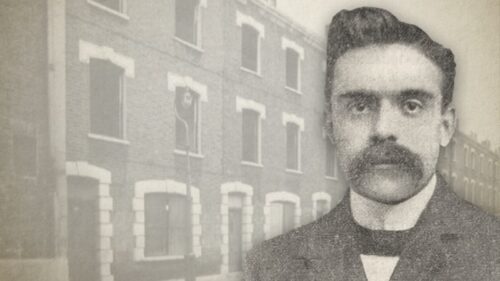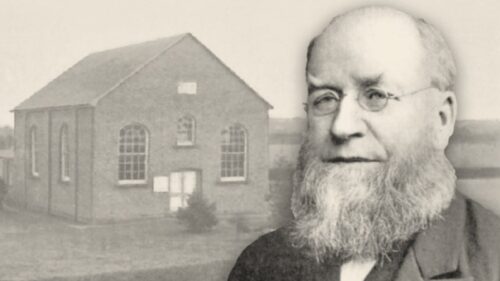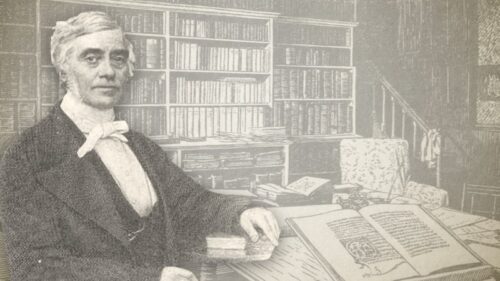-
Evangelizing Or Proselyting?
Arminians evangelize, right? Low-Calvinists evangelize, right? Moderate-Calvinists evangelize, right? Hyper-Calvinists don't evangelize, right? Wrong! The Hyper-Calvinists are the only persons who evangelize. The other groups proselyte. In a recent study on Hyper-Calvinism[1], I distinguished between evangelizing and proselyting. In his book, "Hyper-Calvinism": Is It True?", Stanley Philipps differentiates between the two systems. On page 63, he writes: "(Proselytizing and evangelizing are not the same thing! Modern "evangelism" is a misnomer - it is blatant "proselytizing.”) The Hyper-calvinists never utilized man-made institutions to improve on God's Word. They never turned to the world of the ungodly for financial support or for church members. Finding no "free offer" - not even once - in the Scripture, they give none. To them, the true Gospel is a proclamation,…
-
Is Hyper-Calvinism A False Gospel?
Based on the false dichotomy between the sovereignty of God and the responsibility of man, Low and Moderate Calvinists misrepresent High (Hyper) Calvinism as that form of doctrine which is unorthodox, killing a love for souls, eliminating the need for evangelism and undermining the purpose of prayer. Such are the charges set forth by Roy Hargrave as the reasons why he abhors the Hyper-Calvinists. However, are these assertions true? Is Hyper-Calvinism unorthodox? Does Hyper-Calvinism kill a love for souls? Does Hyper-Calvinism eliminate the need for evangelism? Does Hyper-Calvinism undermine the purpose of prayer? In this study, Jared Smith responds to these charges, setting forth an argument that not only are Hyper-Calvinists orthodox, but they alone nurture an authentic love for souls, fulfill the great work…
-
Six Hundred Hyper-Calvinist Baptist Churches
High-Calvinism[1] may be defined as that set of teachings which denies duty faith, rejects the free offer and renounces the moral law as a rule of conduct for the believer's life. Stated positively, High-Calvinism is that set of teachings which promotes the preaching to all sinners of a full, free and fruitful gospel. By a full gospel, I mean it is the good news of the three branches of the gracious covenant—the electing love of the Father, the redeeming grace of the Son and the sanctifying power of the Holy Spirit. It is on this basis we reject the pernicious doctrine of the free offer. By a free gospel, I mean there are no conditions or requirements placed upon the sinner in order for him/her…
-
Divine Sovereignty And Human Responsibility
Jared Smith's response to Roy Hargrave's arguments against Hyper Calvinism. Part one of two studies. The second study is called, "Is Hyper Calvinism A False Gospel?" The Arminians believe it is the SPIRITUAL duty of the unregenerate to savingly believe on Christ, as they have the inherent ABILITY to exercise saving faith which results in the new birth. The Low and Moderate Calvinists do not believe it is the spiritual duty of unregenerate sinners to savingly believe on Christ, as they are dead in trespasses and sins and therefore do not have the inherent ability to savingly believe on Christ. However, they do believe it remains the MORAL duty of the unregenerate to savingly believe on Christ, because one's inability to exercise saving faith does…
-
What Is Hyper-Calvinism?
What Is Hyper-Calvinism? This same question appears as the title for an article written by Ronald Hanko for the Protestant Reformed Churches in America (PRCA). You may view the full article here. Hanko admits that his group (PRCA) is often maliciously charged with being hyper-Calvinists, because it rejects the well-meant offer of the gospel. However, he argues the historic definition for hyper-Calvinism[1] is restricted to those who deny the doctrine of duty-faith, rather than those who reject the free-offer. He writes, “Historically, the name has been applied to those who deny that the command of the gospel to repent and believe must be preached to all who hear the gospel.” He goes on to explain: “A hyper-Calvinist (historically and doctrinally) is…one who believes rightly in…
-
The One Minute Gospel Proclamation
Those who follow my teaching ministry will know that I am not a fan of Gospel Tracts, such as the Romans Road to Salvation or the Sinner’s Bridge of Salvation. First, these tracts misrepresent the gospel and the sinner’s duty towards God; Second, these tracts are designed to serve as proselyting tools, rather than evangelistic helps; Third, these tracts are used as crutches by those who do not have the knowledge or confidence to speak the truth in their own words. I have been asked on occasion (in various ways), “If you do not believe Gospel Tracts should be used for evangelism, then how would you present the simplicity of the gospel, during a five minute visit at the hospital, to an unregenerate sinner on…








